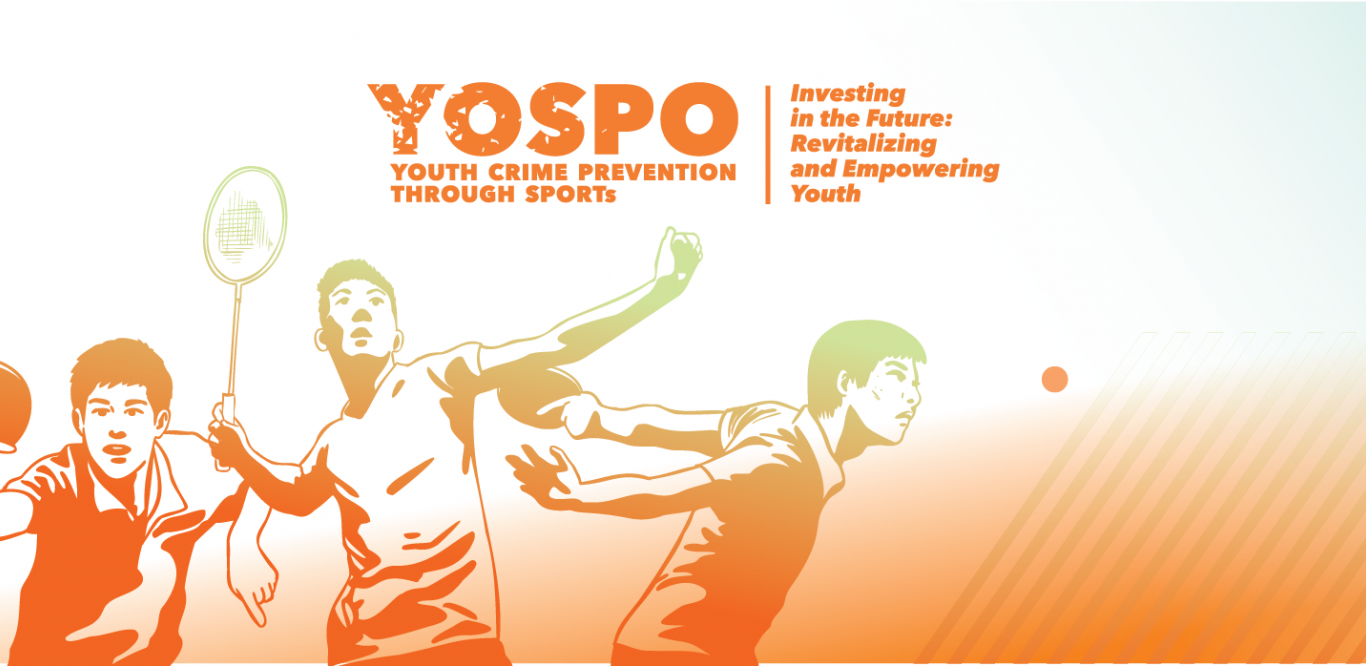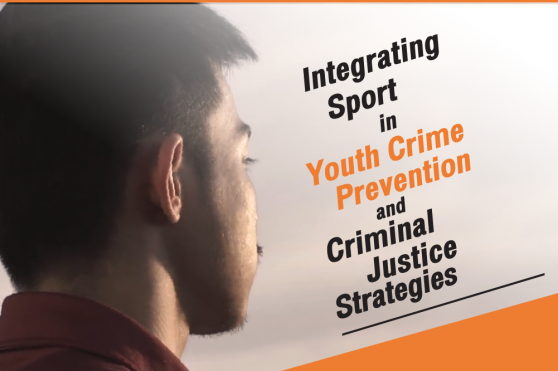TIJ campaigns for “Integrating Sports into Youth Crime Prevention”
The Thailand Institute of Justice (TIJ) brings the idea of using sports as a tool to prevent youth crime to the world’s attention once again as it today hosted a panel discussion on “Integrating Sports into Youth Crime Prevention and Criminal Justice Strategies,” aiming to inspire all parties to adopt this idea and start to take action.

Youth crime is alarming in Thailand. The number of young people in youth detention centres nationwide has reached 36,595 (from 1 January - 20 November 2019). A number of international researches also showed that if this group of young people have access to self-development at the beginning of the justice process, youth crime would be reduced. It is, therefore, important not to ignore this group of young people. To encourage self-development, sports and life skill training should be provided for those in youth detention centres as they are proven practical tools for the social reintegration of offenders.
The discussion today is the first initiative after the United Nations 28th Commission on Crime Prevention and Criminal Justice (CCPCJ), held earlier this year in May 2019 in Vienna, Austria, unanimously adopted the Resolution “Integrating Sports into Youth Crime Prevention and Criminal Justice Strategies,” which is the Resolution that Thailand proposed. This Resolution aims to provide a tangible framework for policymakers and practitioners by underlining the role of sports in achieving sustainable development, justice, and peace. In particular, the Resolution recognizes the power of sports as an enabling factor, not merely for the prevention of youth crime, but also the social reintegration of youth offenders.
Prof. Dr. Kittipong Kittayarak, the TIJ Executive Director, said,
“As a major organization promoting Thailand’s support for UN’s framework on crime prevention and criminal justice, TIJ sees sports as a highly effective tool. We have continuously worked on this to create a concrete positive impact. We also hope this idea would be adopted and expanded nationwide later.”
“The event today is aimed at raising awareness and encouraging cooperation from all parties concerned; from the public, private, and social sectors, as well as media representatives, in promoting sports in youth crime prevention. This cannot be done by any of us alone, but it needs combined efforts from all of us to make it happen."
“One of the solid examples of success is the Bounce Be Good Club, which established in support of HRH Princess Bajrakitiyabha Narendiradebyavati’s vision of integrating sport into physical, emotional, mental and social development of offenders. Sports can be used to prevent young people from involving in crime, and it is a worthwhile investment for enhancing the quality of life of young people who will be the future of Thailand.”
Justice Minister Somsak Thepsuthin said,
“The government has laid out a national strategy on human resource development as part of the 20-year National Strategy (2018-2037). Under this plan, sport is used to promote social value and national development. The Justice Ministry, through the Department of Juvenile Observation and Protection, has drawn supporting policy and implementation framework in support of the national policy.”
Khunying Patama Leeswadtrakul, Board Member of the International Olympics Committee (IOC), said,
“Sport is an important tool to promote physical, attitude and mental development. It provides young people and underprivileged children as well as young offenders with a chance to be a better person, to develop their capability and to become a professional athlete. We deeply appreciate the government for its commitment and initiative of using sports as a tool to develop this group of young people. IOC is willing to support this initiative fully.”
The discussion on “Integrating Sports into Youth Crime Prevention and Criminal Justice Strategies” held on 27 November 2019 at TIJ’s office drew a lot of attention and participation from specialists and leaders from many organizations involved with sport and youth development promotion. Among the panellists are Khunying Patama Leeswadtrakul, Mr. Ekaphop Detkriangkraisorn, the President of BBG Sports Club (Bounce Be Good), Mr. Sahakarn Petchnarin, Director-General of the Department of Juvenile Observation and Protection, and Mr. Niwat Limsuknirun, Deputy Director-General of the Department of Physical Education under the Ministry of Tourism and Sports.
Major topics covered at the discussion are the potential of sports in crime prevention and criminal justice, and the benefits of sports in preventing youth crime. The discussion aimed at raising awareness and promoting mutual understanding of sports in the context of youth crime prevention and criminal justice. It is hoped that the participants would embrace this idea and join forces to implement the strategies across the country effectively.
Prof. Dr. Kittipong concluded,
“The discussion is a significant step to encourage cross-sectoral collaboration. We hope that any initiative taken after this would provide for a good example and inspiration for others in and outside Thailand to follow suit. The TIJ will take the lead role in addressing this initiative at the international level, starting at the Fourteenth United Nations Congress on Crime Prevention and Criminal Justice or the 14th Crime Congress scheduled for 2020 in Japan.”
Besides, from 16-18 December 2019, the TIJ will collaborate with UNODC in hosting an international expert group meeting on integration of sport into youth crime prevention and criminal justice. The meeting will analyze and collect measures and practices introduced in different countries. Recommendations from the meeting will be collected and provided for Governments to effectively integrate sport into their crime prevention and criminal justice strategies at both national and global levels in the future.






